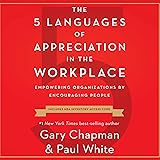A teacher has filed for unfair dismissal, claiming there was no indication she was on a fixed term contract when she was told there was no ongoing work for her. The case is a reminder to be cautious and clear with fixed term contracts.
A Victorian casual teacher has had her unfair dismissal claim quashed by the Fair Work Commission, in a case that highlights the need for HR to be clear when hiring workers on fixed term contracts.
After a school principal told the teacher they no longer had ongoing work for her, she lodged an unfair dismissal claim, stating she had “no reason to believe” that she was on a fixed term contract.
The teacher claimed she wasn’t issued a clear contract regarding the nature of her employment, and if it wasn’t for a some brief notes kept by the principal, the outcome of this might have favoured the teacher. More on that in a moment.
Heading into the end of the year, when employers might be reviewing contracts or considering rosters for the new year, this is an important reminder about why you need to take care when communicating with contractors.
Unclear terms
In 2016, the teacher was engaged by a K-12 college as a casual substitute teacher.
Towards the end of 2019, she was offered a fixed term full-time position to cover for a teacher who was going on leave for the remainder of the year.
After completing this contract, in 2020, the school’s principal met with the teacher to inform her there were no permanent positions available, but said they could offer her a casual substitute position for two days a week, with the potential for more work as required.
The teacher took the opportunity, but at the end of 2020 she was told there was no ongoing work available for her in 2021. The teacher was surprised to hear this news and claimed she was never given an indication that her position was on a fixed contract and argued that she had been unfairly dismissed.
The employer said there was never a suggestion that the teacher’s position was ongoing.
The calendar invite for the meeting between the teacher and the school principal was titled ‘Re: Fixed term contract and 2020 forward planning’ which the employer argued was indicative of the nature of the work. The employer also had evidence noted in the principal’s diary which stated that the role was only for 2020 and “anything suitable thereafter”.
It was these notes that saw the case favour the employer, but it perhaps just got through by the skin of its teeth, as the FWC did agree with the teacher that some of the communication wasn’t entirely clear.
Clear communication
The lessons HR should take from this case is to take care in how you communicate with employees on fixed term contracts, says Annie Smeaton, employment lawyer and Partner at Cooper Grace Ward.
“[Having the case heard by the FWC] could have been avoided by specifying in writing whether the position was ongoing or for a fixed term,” says Smeaton. “Fixed term contracts should only be used if there is a clear start and end date – for example, for a position covering parental leave.”
After accepting the casual position in 2020, the teacher was sent an email outlining her roster and salary, but no set dates were included.
Attached to the email was an ‘employment conditions document’ which laid out the terms of employment for ongoing employees at the school. The teacher argued this was evidence that the position was not specified as a fixed term.
The school agreed that the document was only sent to ongoing employees, but argued it was sent to the teacher by mistake. While this confusion certainly didn’t make matters easier, it wasn’t enough to sway the FWC. Regardless, Smeaton says it is illustrative of the importance of developing very clear and distinct processes for ongoing and fixed term workers.
“There should be different contracts and different terms of employment, so there’s no confusion about when the relationship ends.”
Also avoid using language that could confuse the situation, she suggests.
For example, saying things like, ‘There might be a permanent position down the line’ or, ‘We hope to keep you around’ could be an indication of an ongoing employment relationship, or give employees the wrong impression, as it did in this case.
Extending fixed term contracts
The nature of the teacher’s employment was confused even more in November 2020.
Ten months after starting her two-day per week role with the school (post the parental leave cover contract) the Head of HR sent an email to the teacher stating that it would revert back to the 2019 fixed term contract, and extended it to December 2020.
However, the teacher had her annual leave paid out at the end of 2019, indicating that the fixed parental leave contract had ended. The FWC agreed that this could have reasonably led someone to believe that they were now operating under a new employment agreement.
“It’s important to have very clear terms about when the contract starts and ends, and that the messaging given to the employee about terms of the employment is obvious,” says Smeaton.
If you do need to extend their employment, she recommends issuing a new contract entirely.
“If the contract ends on the 1st, you should create a new contract that’s set to start on the 2nd,” says Smeaton. This ensures there are no grey areas.
However, if you do wish to simply extend the former contract, you can, but she says to make sure you’re very clear in your communications.
“Any changes must be submitted to the employee in writing and the new end date needs to be made clear.”
Employers should also be weary of extending a fixed term contract multiple times, as it can give the impression of an ongoing employment relationship. However, there is precedent showing that the FWC could rule in favour of the employer should you end up in front of the commission in this instance, as HRM has previously covered.
“If someone is being issued a new fixed term contract every six months and that’s been going on for years, it’s time to reevaluate that position,” says Smeaton. “By that stage you’re dealing with an employment relationship.”
The information in this article is general in nature, and should not be taken as legal advice. Where necessary, please consult a legal expert for professional and tailored advice that addresses your company’s specific needs.
Want to brush up your legal skills? Try AHRI’s Introduction to HR Law short course. Register for your spot in their December 15 session now.
The post Casual teacher claims unfair dismissal due to unclear fixed term contract appeared first on HRM online.
Now retrieving an image set.
The Boardroom Journey: Practical Guidance for Women to Secure a Seat at the Table
(as of April 20, 2025 02:49 GMT +00:00 - More infoProduct prices and availability are accurate as of the date/time indicated and are subject to change. Any price and availability information displayed on [relevant Amazon Site(s), as applicable] at the time of purchase will apply to the purchase of this product.)Now retrieving an image set.
The Five Dysfunctions of a Team: A Leadership Fable, 20th Anniversary Edition
(as of April 19, 2025 02:49 GMT +00:00 - More infoProduct prices and availability are accurate as of the date/time indicated and are subject to change. Any price and availability information displayed on [relevant Amazon Site(s), as applicable] at the time of purchase will apply to the purchase of this product.)Now retrieving an image set.
Working in Harmony: 5 Vital People Skills to Raise Your Team’s Performance
(as of April 19, 2025 02:49 GMT +00:00 - More infoProduct prices and availability are accurate as of the date/time indicated and are subject to change. Any price and availability information displayed on [relevant Amazon Site(s), as applicable] at the time of purchase will apply to the purchase of this product.)Now retrieving an image set.
The Power of Mattering: How Leaders Can Create a Culture of Significance
(as of April 20, 2025 02:49 GMT +00:00 - More infoProduct prices and availability are accurate as of the date/time indicated and are subject to change. Any price and availability information displayed on [relevant Amazon Site(s), as applicable] at the time of purchase will apply to the purchase of this product.)Now retrieving an image set.
The World Is Your Office: How Work from Anywhere Boosts Talent, Productivity, and Innovation
(as of April 20, 2025 02:49 GMT +00:00 - More infoProduct prices and availability are accurate as of the date/time indicated and are subject to change. Any price and availability information displayed on [relevant Amazon Site(s), as applicable] at the time of purchase will apply to the purchase of this product.)Now retrieving an image set.
101 Tough Conversations to Have with Employees: A Manager's Guide to Addressing Performance, Conduct, and Discipline Challenges
(as of April 19, 2025 02:49 GMT +00:00 - More infoProduct prices and availability are accurate as of the date/time indicated and are subject to change. Any price and availability information displayed on [relevant Amazon Site(s), as applicable] at the time of purchase will apply to the purchase of this product.)Now retrieving an image set.
33 Strategies of War
(as of April 19, 2025 02:49 GMT +00:00 - More infoProduct prices and availability are accurate as of the date/time indicated and are subject to change. Any price and availability information displayed on [relevant Amazon Site(s), as applicable] at the time of purchase will apply to the purchase of this product.)Now retrieving an image set.
The 5 Languages of Appreciation in the Workplace: Empowering Organizations by Encouraging People
(as of April 19, 2025 02:49 GMT +00:00 - More infoProduct prices and availability are accurate as of the date/time indicated and are subject to change. Any price and availability information displayed on [relevant Amazon Site(s), as applicable] at the time of purchase will apply to the purchase of this product.)Now retrieving an image set.
The Unspoken Truths for Career Success: Navigating Pay, Promotions, and Power at Work
(as of April 19, 2025 02:49 GMT +00:00 - More infoProduct prices and availability are accurate as of the date/time indicated and are subject to change. Any price and availability information displayed on [relevant Amazon Site(s), as applicable] at the time of purchase will apply to the purchase of this product.)Now retrieving an image set.























